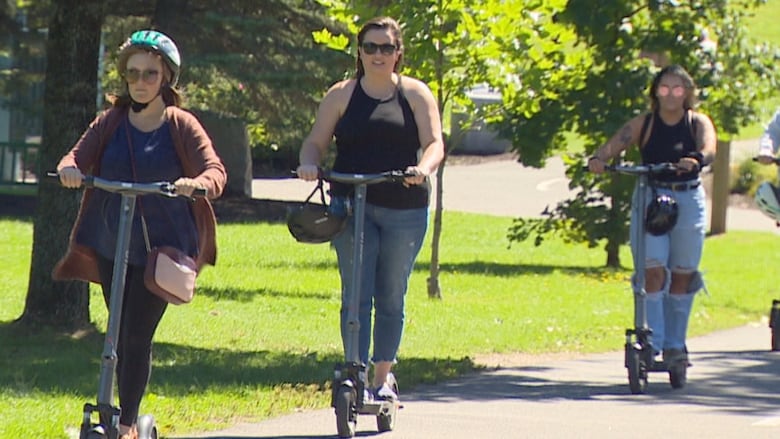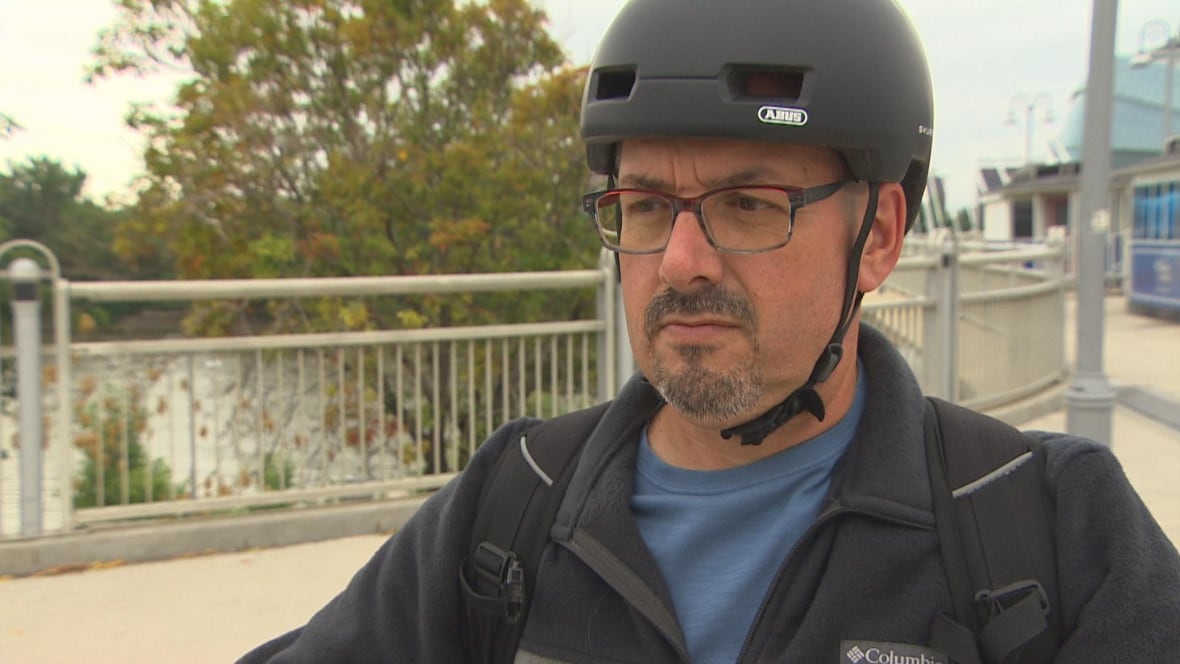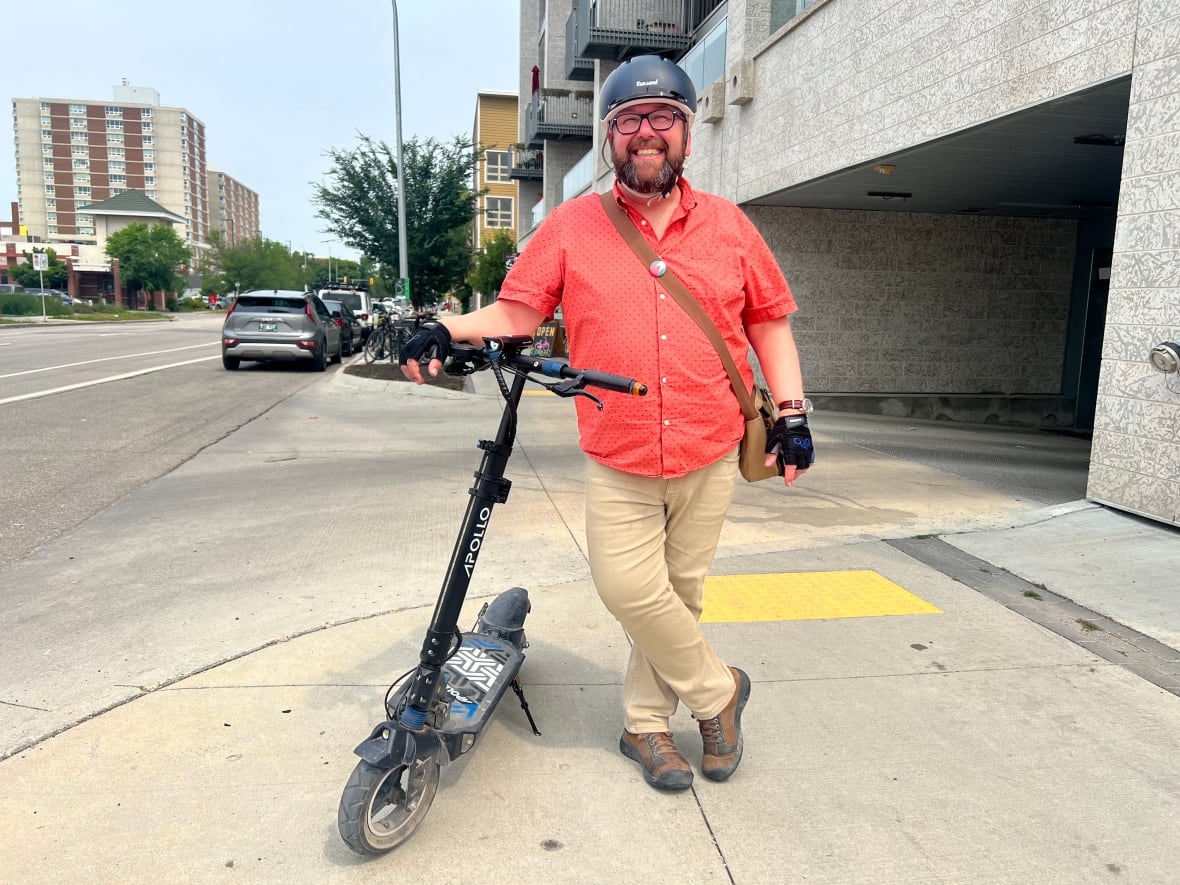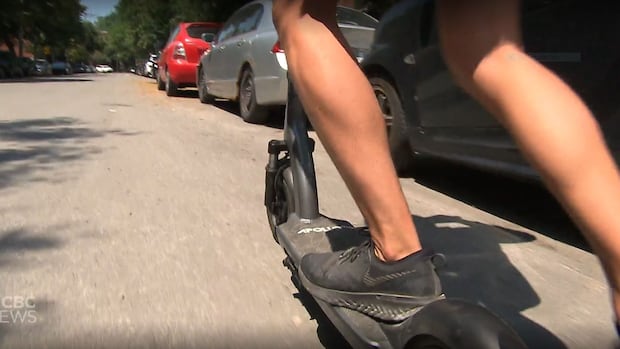'Free-for-all': Advocates call for e-scooter regulations as injury numbers climb
Injuries in Manitoba jumped 50 per cent from 2023-2024

Hospitalizations related to electric scooters have increased and some advocates point to a lack of regulations around the use of the two-wheelers in Manitoba.
Latest data from the Canadian Institute for Health Information (CIHI) said that nearly 1,000 people were hospitalized nationally for scooter-related injuries during the 12-month period starting April 1, 2023. That's up from 810 during the same period of 2022-23.
Half of the injuries — 498 — were related to motorized e-scooters, an increase of 32 per cent over the 375 hospitalizations recorded in 2022-23.
In the same time period Manitoba saw the rise in the total number of injuries jump by 50 per cent.
"I get scared for them because, between a car and a scooter, who's going to win?" said cyclist Marian Siemens, who almost got into an accident earlier this summer because a e-scooter rider ignored a red light.
"He was not paying any attention to the traffic. He could have got smacked … then what would have happened?"
She believes regulations would help curb dangerous driving.
"If they don't follow the rules of the road, they should be fined," she said.
Pamela Fuselli, the CEO of Parachute, a national organization focused on injury-prevention across many fields — at home, on the road, and through activities — said e-scooters are a great low-cost transportation options but they are not toys.
"The injuries can go from cuts and bruises from falling off the e-scooter to broken bones and serious head injuries," she said. "Kids under 16 really shouldn't operate these scooters."
Currently in Manitoba, e-scooters are unregulated which means anyone, at any age, can drive the motorized scooter on streets, sidewalks, and bike paths going any speed.

"I'm just aware of my surroundings and I pick where I drive. I just want to make sure I'm protected if something happens," said Edward Fortier, who uses a scooter to get around the city and commute to work.
"I do know a few people who have had pretty bad accidents on e-scooters, so that's in the back of my mind."
He avoids streets with heavy traffic and plans his route around residential areas or roads that have bike paths he can use.
He says some e-scooter users drive recklessly on the road, making things unsafe for pedestrians, cyclists, and cars.
"If I'm on a sidewalk and there's people … I'm not going to go full speed if there's people walking."
'Not a policy priority'
Rob Kristjansson wants to see motorized e-scooters regulated in Manitoba, much like an electric bike.
"I call it a legal grey area," said Kristjansson, who has been advocating for regulations for years and is a moderator of the e-scooter Winnipeg Facebook group.
According to the City of Winnipeg, motorized vehicles fall under the Highway Traffic Act, which means regulations fall under provincial legislation.
But Kristjansson says amendments made to the act in 2022 give municipalities the power to create bylaws that would set speed limits on shared roads.

The city looked into regulations when there was strong interest in creating scooter-sharing programs, but once that interest died down so did the city's.
Kristjansson has advocated for regulations around speed, age, and where e-scooters can be driven but says he continues to hear the same message from his city councillor: "It is not a policy priority for me in this term."
"I appreciate that the city has many priorities, I just want my thing on the list," he said.
Until motorized scooters are formally recognized in the province, people will continue getting hurt, Kristjansson saod, adding it's a small step with positive impacts down the line.
"To empower regulatory authorities to say 'hey, what you're doing is unsafe, you need to behave like a cyclist' instead of this free-for-all."
A provincial spokesperson told CBC, "as the use of e-scooters continues to grow, the Manitoba government is actively exploring options to establish a regulatory framework to guide their safe and responsible use across the province."
With files from Amina Zafar


